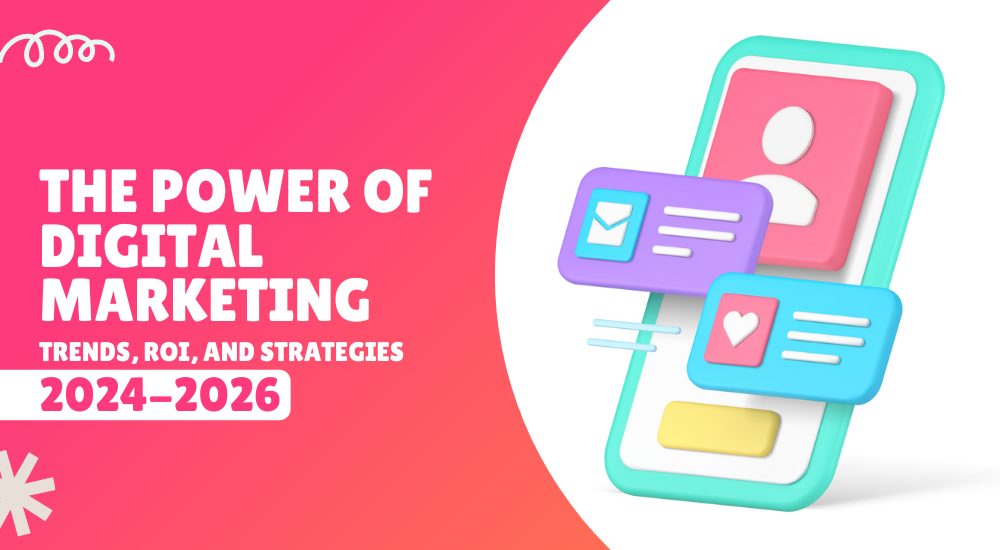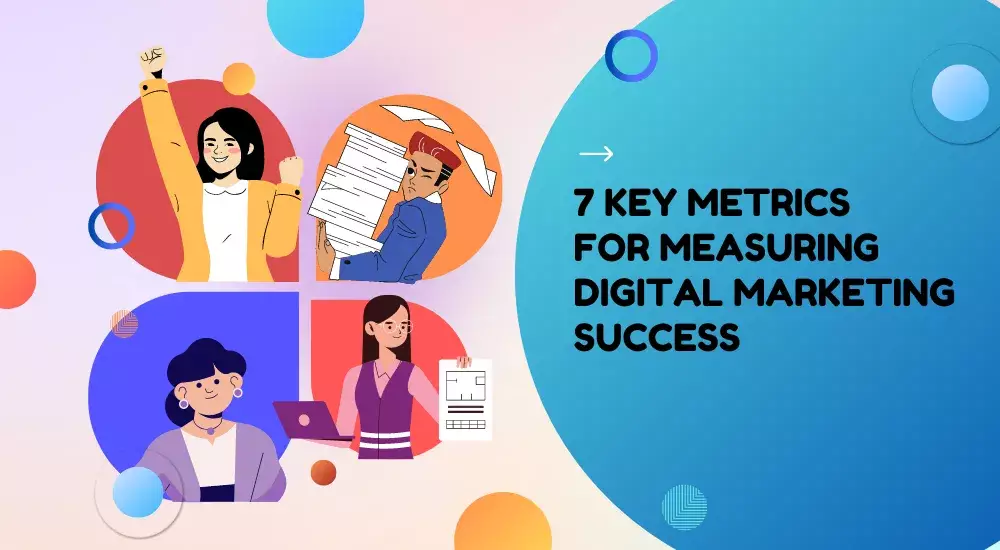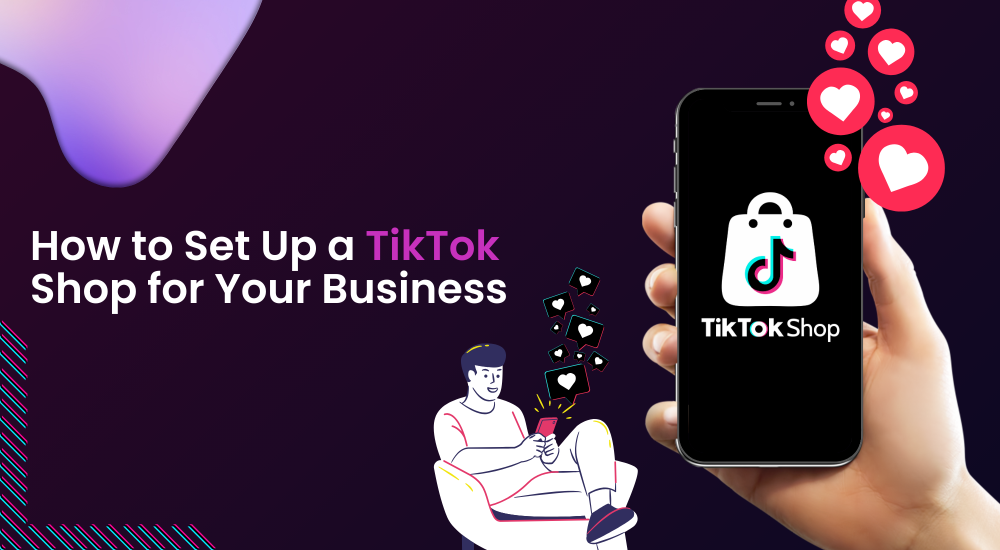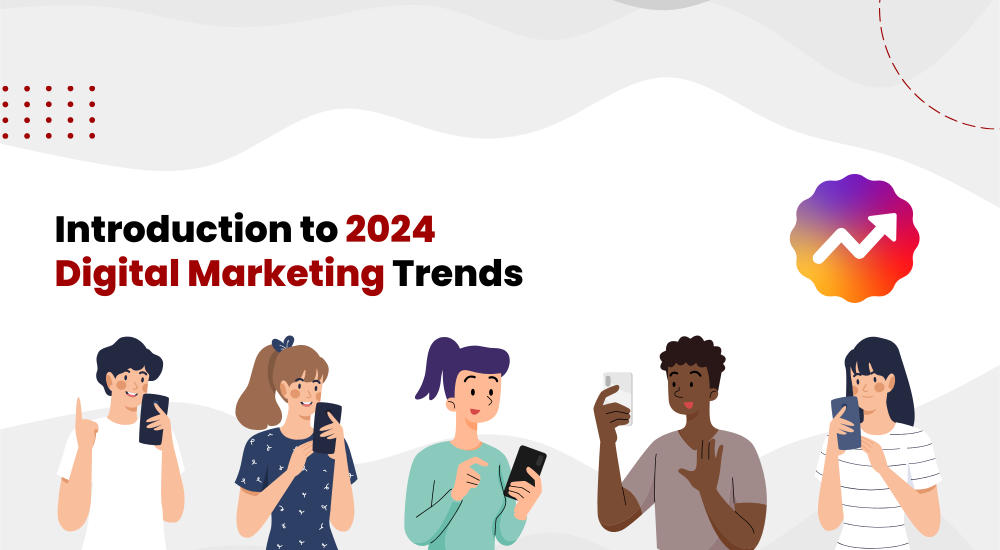
7 Key Metrics for Measuring Digital Marketing Success

Written by Sannia Tiwana
5 Minute Read

Table of Contents
The world has reached to a point where the doomsday clock has set to 90 seconds to midnight. A clear indication in itself that we are surfing at the utmost successes and developments. The world is at its peak and are you still struggling to assess how far your digital marketer took your business to? Well, not a big deal, let us help you through!
How to assess if your digital marketer is helping your business grow
There are certain things that need to be assessed and all you will get back is the ratio of either your business success or its downfall. Here are the 7 things to look at:
Traffic
Hey no, not the traffic on the road. We know the roads are already full of cars but is your website full of visitors? This is what you need to look for. Just like a pretty clean blockage-free road would have a lot of cars on the route, a website that is worked upon would have a lot of visitors on it. But we understand a lay businessman won’t get into the technical glitches and numerical calculations therefore, we will make you understand everything like a 2 year old learner so, hang in there!
There are two main types of website traffic:
- Organic traffic: This is when people find your website through search engines like Google, Bing, or Yahoo. For example, if you sell toys and someone types "best toys for kids" into Google and your website comes up in the search results, they may click on your website and become organic traffic.
- Paid traffic: This is when you pay for advertisements to get people to visit your website. For example, you might pay to have an ad for your toys show up on someone's Facebook or Instagram feed. If they click on the ad and go to your website, they count as paid traffic.
Website traffic is important because the more traffic a website has, the more people are visiting and potentially buying products or services. It's like having a lot of people come to your store - the more people there are, the more chances there are for someone to buy something
4 things you need to make sure your digital marketing agency is doing for your website traffic
- Using search engine optimization (SEO) techniques to make your website more visible on search engines.
- Using social media to promote your website and drive traffic.
- Creating engaging and shareable content that people will want to visit and share with others.
- Using paid advertising to drive traffic to your website.
Website traffic is an important metric to track because it can help you understand how popular your website is and how many people are potentially interested in your products or services.so, if your business website is lacking behind in traffic, put your guards on!

Conversions
Well, now imagine your store has a lot of visitors coming and going without filling up their bags with your products. Won’t that feel like a museum or an acting stage where the side actors just have to be there in a shop to make it feel like a shop to the viewers? It definitely will. So, the next thing you need to make sure about is conversion. Check whether the number of conversions has increased, such as sales, downloads, or sign-ups.
Conversions are when someone takes a specific action on a website that the website owner wants them to take. For example, a conversion could be when someone:
- Makes a purchase on an online store
- Fills out a contact form
- Subscribes to a newsletter
- Downloads a free resource
- Registers for an event
When someone completes one of these actions, they "convert" from just browsing the website to taking an action that the website owner wants them to take.
Conversions are important because they help website owners achieve their business goals. For example, if a website's goal is to sell products, then conversions/purchases are extremely important. If a website's goal is to generate leads, then conversions/contact form submissions are important.
There are different types of conversions depending on the website's goals. For example, if you are an e-commerce website, make sure your digital marketer is tracking sales conversions, while a non-profit organization might track donation conversions.
Now to ensure everything that you just learned about is being performed on your website by ensuring your digital marketer is:
- Making it easy for users to take the desired action
- Providing clear calls-to-action (CTAs)
- Offering incentives
- Improving website design and user experience
Conversions are important because they help website owners achieve their business goals, and there are many ways to improve conversions on a website. Well, this is not it, let’s jump to the 3rd point.
ROI
It is time for some reward! All the hard work pays off something so, ROI is that something that you get after all the efforts.
ROI stands for "return on investment." It's a way to measure how much money a business earns compared to how much money they spent.
Let's say a business spent $100 on a digital marketing campaign to promote their products. After the campaign ended, they earned $200 in sales from customers who clicked on the campaign's ads.
To calculate the ROI, we would use this formula:
ROI = (Revenue - Cost of Investment) / Cost of Investment
In this case, the ROI would be:
ROI = ($200 - $100) / $100 = 1
This means that for every $1 the business spent on the campaign, they earned $1 in revenue.ROI is important because it helps businesses understand whether their marketing efforts are worth the investment. If the ROI is high, then the business is making more money than they spent on marketing, which is a good thing. If the ROI is low or negative, then the business may need to re-evaluate their marketing strategies.
There are different types of ROI depending on the goals of the marketing campaign. For example, if the goal of the campaign was to generate leads, then the ROI would be based on the number of leads generated compared to the cost of the campaign. If the goal was to increase website traffic, then the ROI would be based on the amount of traffic generated compared to the cost of the campaign.
ROI is a way to measure how much money a business earns compared to how much money they spent on marketing. It's important because it helps businesses understand whether their marketing efforts are worth the investment. To make sure, measure the return on investment for your digital marketing campaigns along with what you paid to your digital marketer. The game doesn’t end here. There are still 4 points to assess.

Engagement
The initial goals of a business could be to gain enough revenue but then there comes a point when the revenue goes onto a pilot mode and you don't need to make efforts on it. Now you need to make your name. Analyze whether your audience is engaging with your brand more, such as liking, sharing, and commenting on your social media posts. This shows the level of interest your buyers have in your products. This can help you in a bundle of ways.
Engagement in digital marketing refers to how people interact with a business's online content. This can include things like:
- Liking or commenting on a social media post
- Sharing a blog post
- Watching a video
- Clicking on a link
- Filling out a survey
- Sending a message
Basically, engagement is any action that a person takes to interact with a business's online content.
Engagement is important because it shows that people are interested in what the business is sharing. If a business has high engagement on their social media posts, for example, it means that people are liking, commenting, and sharing the posts, which helps to increase the post's reach and visibility.
There are different types of engagement depending on the platform and the type of content. For example, on social media, engagement can include likes, comments, and shares. On a blog, engagement can include comments and shares. On a video platform like YouTube, engagement can include likes, comments, and views.
To make sure your digital marketing agency is doing their best, ensure they are:
- Posting high-quality, relevant content
- Asking questions and encouraging discussion
- Responding to comments and messages
- Running contests or giveaways
- Using eye-catching visuals
Rankings
Check whether your website's search engine rankings have improved for targeted keywords. Ranking in digital marketing refers to where a website or web page appears in search engine results when someone searches for a specific keyword or phrase.
For example, if someone types "best pizza in town" into a search engine, the search engine will show a list of web pages that it thinks are the most relevant to that search term. The web page that appears at the top of the list is said to be ranking first for that search term.
Ranking is important because the higher a web page ranks in search engine results, the more likely it is that people will click on it and visit the website. This can lead to increased traffic, sales, and revenue for the business.
There are different types of ranking depending on the search engine and the type of content. For example, on Google, there are different types of search results, such as:
- Organic results: These are web pages that appear in the search results based on their relevance to the search term, without the business paying for ads.
- Paid results: These are web pages that appear in the search results because the business paid for ads to appear for specific keywords or phrases.
To ensure your business is ranked properly, monitor whether your digital marketer is:
- Optimizing your website for search engines by using relevant keywords, meta descriptions, and titles
- Creating high-quality content that provides value to your target audience
- Building backlinks from other reputable websites
- Using paid advertising to make your website appear at the top of search engine results
Ranking in digital marketing refers to where a website or web page appears in search engine results. It's important because the higher a web page ranks, the more likely people are to click on it and visit the website. There are different types of ranking and techniques that businesses can use to improve their ranking.

Also read: 5 Confirmed Google’s Ranking Factors In 2023
Customer’s Feedback
Well, if you are a businessman, you might well understand the term feedback. The way you as a company give feedback to your service providers to appreciate their services or to criticize them in order to make them serve you better, your customers do the same and that is important to you equally.
Customer feedback in digital marketing refers to the comments, reviews, and opinions that customers share about a business's products or services online.
For example, if someone purchases a product from an online store, they may leave a review on the store's website or on a third-party review platform like Yelp or Google. This review would be considered customer feedback.
Customer feedback is important because it helps businesses understand what their customers like and dislike about their products or services. This information can then be used to make improvements or changes that will better meet the needs and wants of their customers.
There are different types of customer feedback depending on the platform and the type of content. For example, on an online store, customer feedback can include reviews, star ratings, and comments. On social media platforms like Facebook or Twitter, customer feedback can include comments, direct messages, and mentions.
To gather customer feedback, make sure your digital marketer is using the following techniques:
- Encouraging customers to leave reviews or feedback on their website or third-party platforms
- Sending surveys or questionnaires to customers
- Monitoring social media platforms for mentions or comments
- Conducting focus groups or user testing
Customer feedback in digital marketing refers to the comments, reviews, and opinions that customers share about a business's products or services online. It's important because it helps businesses understand what their customers like and dislike, which can lead to improvements or changes that better meet their customers' needs. Look for feedback from customers to see if they are finding your products or services more easily, are happier with their experience, or have other positive feedback.
Reporting
Client reporting in digital marketing is the process of creating and sharing reports with clients that show the results of their marketing campaigns. These reports help clients understand the impact of their marketing efforts and the return on investment they're getting. Digital marketing agencies use various tools and software to track campaign metrics and may include visualizations like charts and graphs to help clients better understand the data. Client reporting is like a window into the success of your marketing campaigns, providing valuable insights and data that can help you make informed decisions and optimize your marketing strategy for better results. Evaluate whether your digital marketer is keeping you informed and providing regular reports on campaign performance.

Conclusion
Digital marketing can be incredibly beneficial for businesses if done the right way by a skilled digital marketer. A successful digital marketing campaign can help businesses reach their target audience, build brand awareness, and drive sales. A digital marketer who understands the nuances of digital marketing can help your business navigate the ever-changing digital landscape and achieve your business goals. Ultimately, digital marketing can be a game-changer for businesses looking to stay ahead of the competition and thrive in the digital age.
Since you have gathered a lot of information on how to keep a check on your digital marketing agency, one final nail in the coffin is that it is better to choose the right digital marketer so that you don’t have to nudge yourself into these tricky things.
Originally Published March 17, 2023 03:50 PM, Updated March 21, 2023.
Our Latest Blogs
Our Clients














































